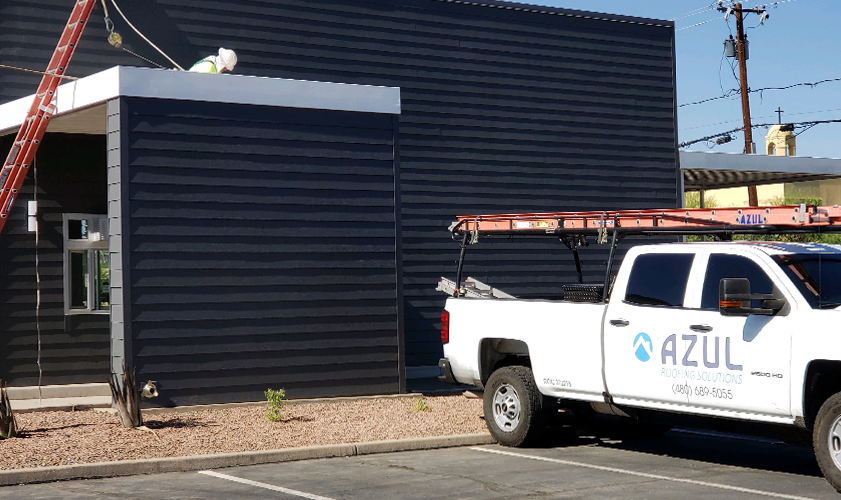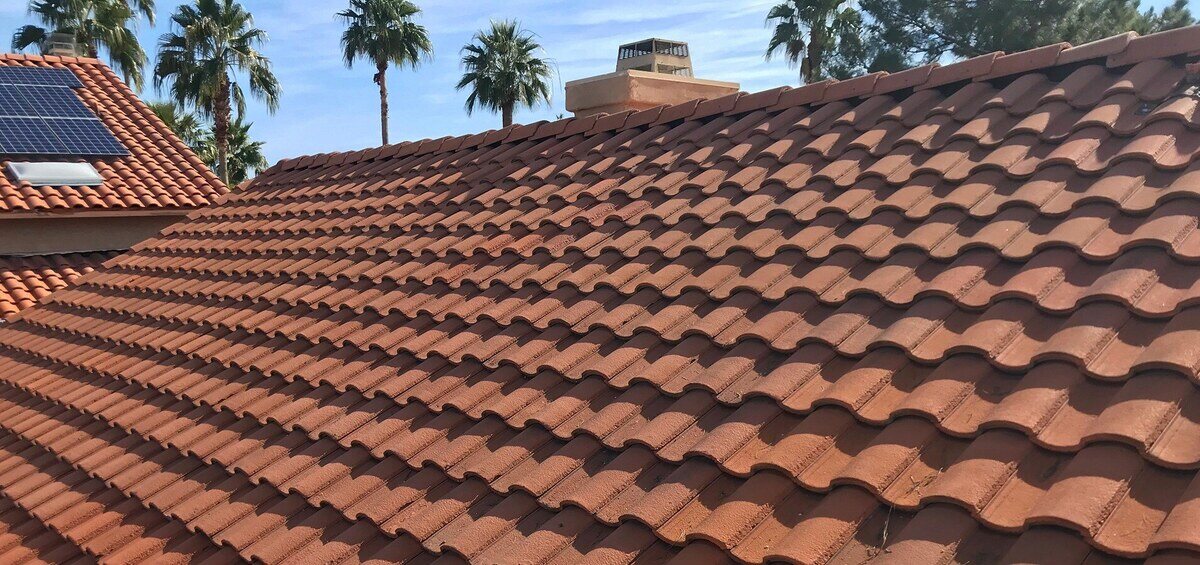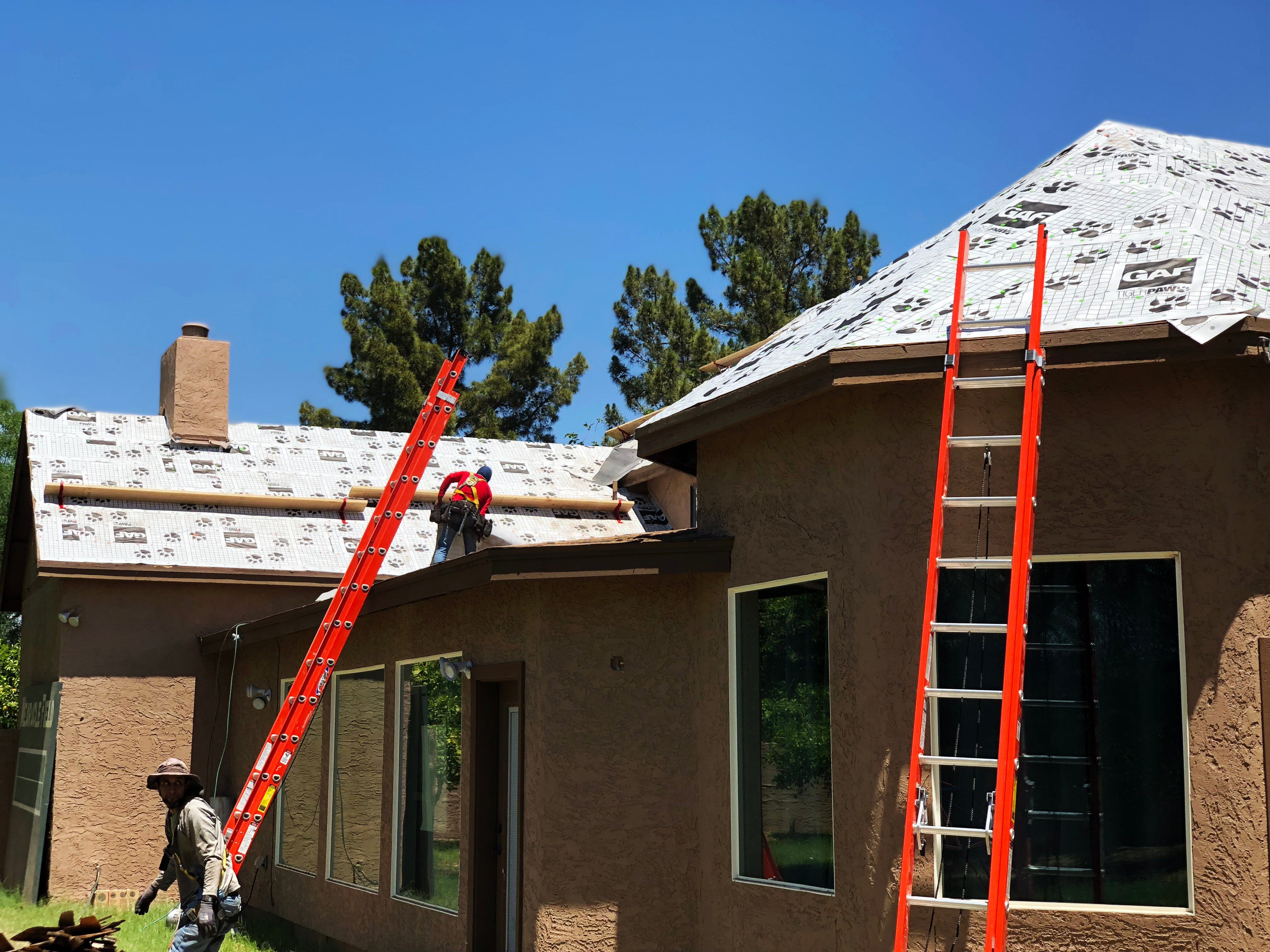Tile Roofs in Arizona: What to Watch for as Your Roof Ages
Home / Azul Blog / Tile Roofs in Arizona: What to Watch for as Your Roof Ages Tile roofs are one of the most popular roofing systems across Arizona—and for good reason. Clay and...

Your roof protects nearly everything you value. In the case of a commercial building, your roof also protects your livelihood while ensuring a safe environment for your employees and customers. Gambling with a shoddy roof places a lot critically important things on the line. But how do you know when a roof is bad? What should you know when seeking a replacement?
Many business owners have questions about commercial roofing. Since these roofs are significantly larger and can sometimes use different materials than residential roofs, it's no wonder why there are many unique questions surrounding them. In this blog, we review some of the most common commercial roofing questions we receive here at Azul Roofing Solutions and their answers.
There are several types of commercial roofing, but some of the most common ones include:
In Arizona, the most common commercial roof types we see fall under the BUR and polyurethane spray foam. Since the majority of commercial roofs are flat, these are common roof materials that suit non-pitched roofs the best, and also do a good job reflecting sunlight and insulating the building envelop from the searing Arizona summers.
The lifespan of a commercial roof varies depending on the type of roofing material used, the climate, quality of installation, and the level of maintenance it receives. The amount of foot traffic your roof receives, to reach HVAC units for example, can also affect how long it lasts. In general, a properly maintained roof in Arizona can last anywhere between 15 and 50 years, depending on the type, quality of installation, and wear.
It's recommended to have your commercial roof inspected at least once every two years, preferably in the fall or winter to ensure it's ready to weather our rainy season in the spring and summer here in Arizona. Regular inspections can identify potential problems early on and prevent costly repairs down the line - or even catastrophe during heavy rains.
Keeping an eye out for any signs of damage to you roof is another key to maximizing the lifespan. Common signs that your commercial roof needs repairs include:
Visual inspections can help you detect any of these early warning signs. Flat roofs are easier to do a quick check on since you can be physically on the roof, whereas pitched roofs are harder to see and inspect from the ground. If your commercial building has a pitched roof, you can contact a professional roofing company for a free inspection.
Whether a commercial roof can be repaired or needs to be replaced depends on the extent of the damage. Small leaks or cracks can often be repaired, but if the damage is extensive or the roof is near the end of its lifespan, it may need to be replaced. Most reputable roofing companies offer free inspection services. This is a great way to spot issues before they become a major problem. Caught early, some issues can be solved by a simple repair.
The cost of replacing a commercial roof varies depending on the size of the roof, the type of roofing material used, the size of the replacement, and the complexity of the installation. On average, a commercial roof replacement in Arizona can cost anywhere from $5 to $15 per square foot.
As far as the time it takes to replace a commercial roof, it also depends on the size and complexity of the job. You can expect a roof replacement to take anywhere between a couple of days to a week or two. A qualified roofing company will be able to tell you how long your project will take and any necessary preparations you should do beforehand for a smooth installation.
Yes, some commercial roofs are compatible with insulation, which can help improve your building's energy efficiency and reduce heating and cooling costs - especially during our hot Arizona summers. There are several types of insulation materials available, including spray foam, low-E insulation, fiberglass, and cellulose. Ask your roofing partner about what insulation options would make sense for your roof.
As a business owner, it's important to have a good understanding of your commercial roofing system. Knowing the common types of commercial roofing, how long they last, and how to identify signs of damage can help you make informed decisions about repairs or replacements. Regular inspections and maintenance can also help extend the life of your commercial roof and protect your investment.
If you're interested in scheduling a free inspection to ensure your commercial roof is in tip-top shape, contact us today.

Home / Azul Blog / Tile Roofs in Arizona: What to Watch for as Your Roof Ages Tile roofs are one of the most popular roofing systems across Arizona—and for good reason. Clay and...

Home / Azul Blog / Roof Underlayment 101: What It Is & Why It’s Important When most homeowners think about their roof, they picture the tiles, shingles, or foam that cover the top...